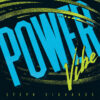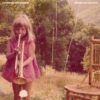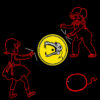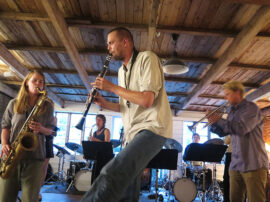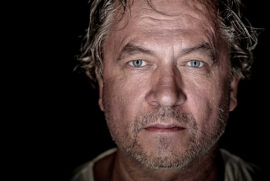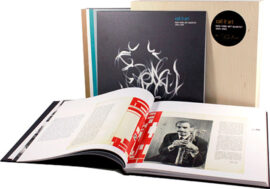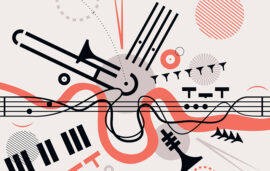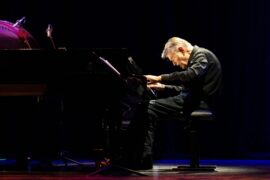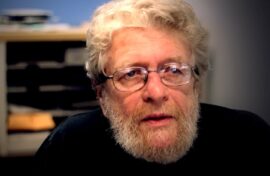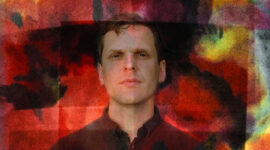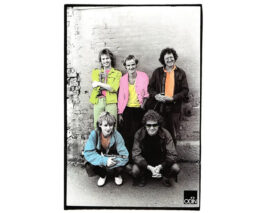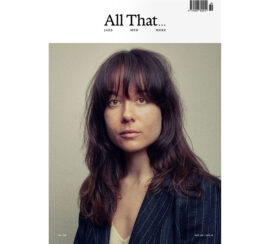
أحمد [Ahmed] is the one of the most exciting working bands today. The quartet of British pianist Pat Thomas, Swedish double bass player Joel Grip (who also runs the Umlaut Records), French drummer Antonin Gerbal (Thomas, Grip and Gerbal are also the unconventional piano trio اسم [ism]) and British alto sax player Seymou9r Wright (a disciple of Eddie Prévost and half of the XT duo with drummer Paul Abbott) re-arranges and re-imagines in the music of double bass player-oud player-composer Ahmed Abdul-Malik (1927-1993) known for playing in the Thelonious Monk Quartet and Randy Weston bands, and for introducing Arabic and African music into hard bop.
Wood Blues – a clear reference to Abdul Malik’s «Oud Blues» and its walking bass role in this piece, is the fourth album of [Ahmed], and it captures a 59-minute live piece at the Counterflows festival before 600 people in the dance floor of The Glue Factory in Glasgow in April 2022. It was the first time that the quartet played after the Covid-19 pandemic and the music of the quartet, as writer and broadcaster Edward George writes in the liner notes, sounds like a «Brownian bridge, an A&J Tranean train, a Byrdian plane, or a Blountian space-time myth-machine». But this piece is far from being an archaeologist journey, as [Ahmed] has a mission: «We excavate and reinhabit documents and fragments of plans and compositions that he (Abdul-Malik) left behind to make music that though it originated in the 20th century will speak to the 21st».
This piece swings hard but turns the familiar swing pulse inside out as if the four musicians were possessed by a spiritual power that could have elevated the performing space into Sun Ra’s atmosphere. But at the same time, it feels totally free, sometimes even chaotic, as the music is in a constant, propulsive and intense process of reflection, change and transformation, suggesting an intertextual mystery that offers food for thought, or more dissonant dilemmas – about the history of jazz and free music and its most underrated heroes, than providing comforting answers. The cover photo is of ‘Chaouen in Morocco from 1968 by British photographer Val Wilmer.
Giant Beauty is a five-disc box set (only 515 copies) that documents a five-day residency of [Ahmed] at the fifth Edition festival in Stockholm at the old Fylkingen (an old 18th-century brewery at the foot of Stockholm’s highest mountain, close to where Grip grew up) during a rare heatwave in August 2022, and parallel to a program of Éliane Radigue’s Occam works for acoustic instrumentalists. Each evening began with a concert of Radigue’s music and ended with a set of [Ahmed]. The box set comes with a 96-page book with texts by Silvia Tarozzi, Magnus Granberg, Nate Wooley, Valerie Mol, Pär Thörn and Lars Grip. and drawings by Guillaume Delcourt and Aliocha Delcourt. The photos of this box set were taken at the Golden Circle club in Stockholm in the mid-1960s. The title of this box resonates with Abdul-Malik’s interview for Downbeat from 1963: «How can you play beauty without knowing what beauty is, what it really is? Understanding the Creator leads to understanding the creations, and better understanding of what you play comes from this. How can you understand fully without knowing the start, the continuation, and the ending?»
The quartet revisits Abdul-Malik’s pieces and begins with a volatile and quite brutal version of «Night on Saturn», covered in its third album (Astral Spirits, 2021), with [Ahmed] applying seminal, collective free improvisation approaches of British bands AMM and SME to its stormy improvisations, even while playing its futurist, elegant interpretation of swing. Wooley (who played Radigue’s music at the festival) observed the [Ahmed] sonic phenomenon: «When you use your body to make music, an incredible amount of intensity is directed toward making—becoming—a sound. The mind directs the flow of your body’s strength to that end, bypassing the safety valves between creative intelligence and muscle memory, guiding lungs and limbs toward a gesture that exists in a suddenly knowable future. If you’re a spiritual person, it is a transcendent action: the exhaustion of the body in order to achieve something higher. If you’re a pragmatist, it is simply using the right tool for the job. Regardless of ideology, the result is anatomy pushed to the limits of brute strength and delicate precision».
[Ahmed] played on the second night «Oud Blues» but this version is different from the one played four months earlier in Glasgow. It sounded as fitting the concentration needed for the earlier music of Radigue and a very sparse composition of Magnus Granberg and had a slow-cooking and more reserved and focused spirit. The «African Bossa Nova» on the third night brings an uplifting, hypnotic danceable groove to the quartet’s collective dynamics. The quartet played on the fourth night «Rooh (The Soul)», introduced by Grip’s double bass channelling the spirit of cellist Abdul Wadud who died the same week, as this more introspective, mournful drone-like piece is dedicated to Abdul Wadud. [Ahmad] closed their residency on the fifth night with «El Haris (Anxious)», the piece they played and recorded at their first public performance in a rural Swedish barn for Grip’s Hagen-fest in 2016 (released as New Jazz Imagination, Umlaut, 2017). This piece expands the lyrical, textual, drone-like veins of the previous piece and, again, sounds as relating to the earlier performance of Radigue’s music, but with a beautiful, openly emotional coda.
Wooley summarized this unique experience: «When a runner wins a race, their spirit is used up in victory, dissipating into the roar of the crowd. When [Ahmed] plays a set, their fire is not only sustained but is injected in amplified form into the audience. This is why we should pay attention to the energy artists expend. It augments our appreciation for communion, the rapture of sharing space and time with these people and with each other. Their exhaustion is a gift, not a measure. It’s an embrace, not a feat of strength. The musicians will pay later, but what it has purchased will be worth it». Sound artist Valerie Mol mentions in her liner notes that the Swiss-French architect Le Corbusier called the music of Louis Armstrong hot jazz. The music of [Ahmed] is hotter than sweaty Stockholm during the heatwave but it is also music that stimulates and nourishes the body and soul.
Eyal Hareuveni
Pat Thomas (piano), Joel Grip (double bass), Antonin Gerbal drums), Seymour Wright (alto saxophone)



